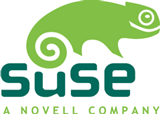Microsoft's silent threat of patent lawsuits against Linux users is beginning to solidify in the last couple of days. Since the announcement with Novell, Microsoft have been busy trying to establish similar patent protection deals with other Linux vendors. However their attempts have not been greeted warmly by Red Hat who's deputy general counsel ruled out any need for such an agreement on the grounds that "we do not believe there is a need for or basis for the type of relationship".
Fortunately for Microsoft they are not easily deterred by such confidence with CEO Steve Ballmer (in the words of Boing Boing) painting Linux users as patent crooks during a Q&A session on Friday. Although Ballmer did not say it so bluntly he did openly threaten businesses running Linux by stating that the Novell patent protection is crucial otherwise:
"We (Microsoft) believe every Linux customer basically has an undisclosed balance-sheet liability."
Source LinuxWorld - Linux Users Owe Microsoft
These are definitely fighting words but at some stage they are going to have to do more than just rattle their hypothetical sabres and actually sue. If (when) that day comes it will be a very interesting moment in open source history and be a pivotal moment in the future of Microsoft.



 Last week I sat and passed by
Last week I sat and passed by